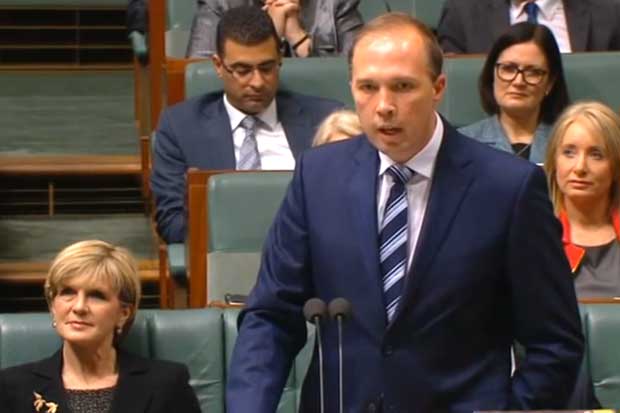On Friday morning, the Australian Border Force Bill 2015 was passed through the senate. For anyone who isn’t working in Customs, Immigration and Border Protection, it’s not the most relevant piece of legislation. However, a latter part of the bill, focusing on secrecy and disclosure, has some interesting implications for the future of whistleblowing in this country.
So what's the bill all about anyway?
Put simply, the Australian Border Force Bill 2015 is a 56-page document instructing the operations and management of the Immigration and Border Protection Department, including the role of the Australian Border Force Commissioner, alcohol and prohibited drug testing procedure, exercise of powers, misconduct management, and secrecy and disclosure policy.
What impact will it have on whistleblowers?
Potentially, jail. Part 6 of the bill states that any “entrusted person” (defined as the Secretary, the Australian Border Force Commissioner, or any Immigration and Border Protection worker) will face a penalty of two years’ imprisonment for recording, or disclosing, protected information.
Who exactly will this affect?
The term “Immigration and Border Protection worker” is broad in the bill.
Jargon aside, this means that any consultants and contractors to the department are inclusively at risk in addition to regular staff — as are other public servants and employees of the state who have, at any point, undertaken work for the department.
Why is this important?
The significance of these laws being enacted with specific regard to Customs, Immigration and Border Protection is that currently, this is a department where transparency is needed immensely.
Australia has a brutally hardline anti-asylum seeker approach. Refugees who arrive on our shores seeking asylum are dubbed “boat people” or “economic migrants” in political rhetoric and locked up in mandatory detention facilities — many of these offshore, where there have been known, reported and investigated cases of abuse, neglect and torture.
Much of this information came to light only through information provided by former Immigration staff including workers from the Salvation Army, one of the charities contracted to provide services on Manus Island. Nicole Judge and Simon Taylor, who had been stationed on the island, launched senate submissions after witnessing ongoing, vast mistreatment at the offshore detention centre.
The “secrecy and disclosure” provision of the Australian Border Force bill imposes restrictions threatening freedom of information. Under the new legislation, Judge and Taylor may have faced imprisonment for their disclosure had it been deemed “protected information.”
In the past, an anti-whistleblowing law was used to vilify Save the Children workers, who had brought attention to instances of child self-harm taking place within the detention centre on Nauru. Instead of the facility, it was the whistleblowers who were investigated at the time.

The Australian government’s attempt at constructing an oubliette of both physical and social isolation around asylum seekers is alarming. While we know that people are being grossly mistreated to an inhumane extent, the information is more than likely to be obstructed.
Nauru has recently imposed a ban on Facebook, concerning refugee advocates in Australia. Asylum seekers there had previously been able to use the social media site to communicate with the world outside, but no longer have this access.
A recent article by The Citizen reported that an increasing amount of Australian workers are seeking to reveal information about the conditions on Manus Island and Nauru, proving the Australian Border Force bill a timely addition to prevent this from happening — even more pertinent in days where the legality of Australian policy is being placed into question, and the wake of global humanitarian crises.
Donate To New Matilda
New Matilda is a small, independent media outlet. We survive through reader contributions, and never losing a lawsuit. If you got something from this article, giving something back helps us to continue speaking truth to power. Every little bit counts.



